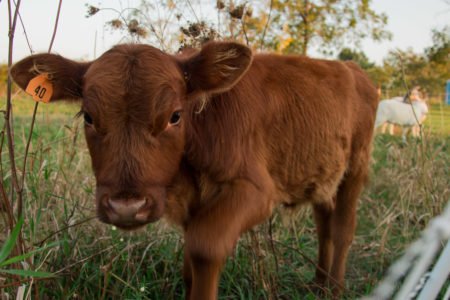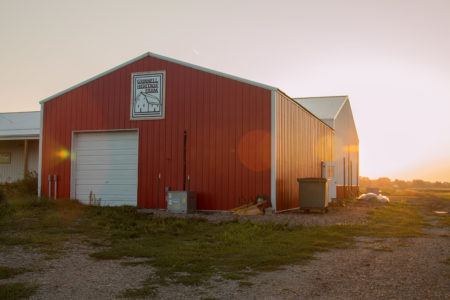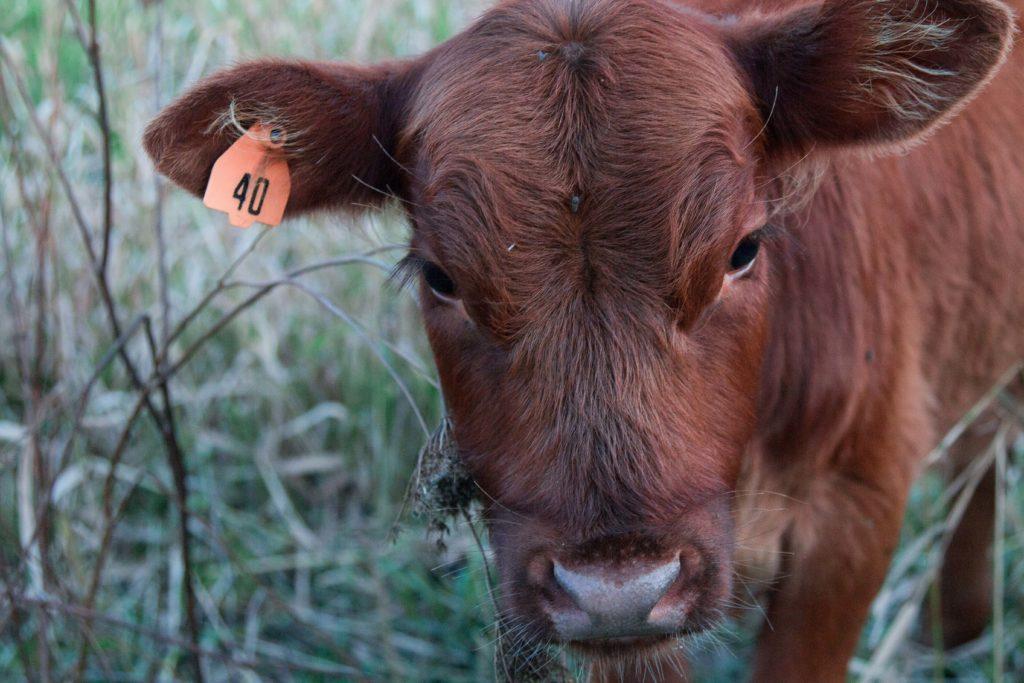Beginning in August and continuing through October, Grinnell Heritage Farm has welcomed the Grinnell community to pizza nights every second and fourth Friday of the month. Andrew Dunham, who owns the farm with his wife Melissa, hopes to build community through the pizza nights.
“With the latest round of elections, it has been relatively eye-opening to see the divide in a town like Grinnell and how polarized it is,” Dunham said. “For the most part, people who are liberal or conservative don’t even talk to people who they deem the opposite of them. So this a way to get people out and having conservations.”
Communal seating promotes conversations between neighbors. Live music, delicious food and the idyllic backdrop of the farm create a comfortable and authentic environment.
“I’ve had a lot of great conversations with people who I don’t think I would have met otherwise,” Dunham said. “We’re trying to do our small part.”
The event attracts a wide variety of people, from college students and professors to town residents and farmers. The most recent pizza night coincided with parent’s weekend, leading the farm to prepare around 400 pizzas in anticipation of a larger crowd.
Although the owners encourage community, the farm itself is a controversial topic among town residents.
“Some people are knee jerk anti-organic,” Dunham explained.

One individual in particular drives by the farm a few times a year and yells anti-organic expletives out the window. Dunham attributes this sort of response to people simply not having enough education surrounding organic farms. Over the years, however, the town’s view of the farm has grown more positive.
“I would say most of people that give us a chance and come out and see the farm are pretty impressed,” Dunham said. “When I first moved here, I could go into the implements store and they kind of looked like I was crazy. Now that we’ve actually been financially successful and purchased equipment there, they’ve gotten to know me. Now they’ll come out and say ‘hey, do you need anything this year?’ or ‘what can we help you with?’”
In addition to changing perceptions of the farm, financial success allows Dunham to farm in the first place.
“[There is no] economic incentive to farm corn and soy on 80 acres,” he said. “We would likely lose money every year and I wouldn’t be farming. I would just be hiring a neighbor to do all the work for me and that just doesn’t interest me.”
Unlike most farms in Iowa that alternate between cultivating corn and soybeans, Grinnell Heritage Farm grows a variety of different crops, which are certified organic and therefore have higher market value.
From an ethical standpoint, however, Dunham wouldn’t farm conventionally “even if it was more lucrative.” He described how pesticide and fertilizer runoff wreak havoc on the environment, causing a massive dead spot the size of New Jersey in the Gulf of Mexico. Additionally, the sustainability of the farm is important for future generations.
Instead of using chemical pesticides, Dunham employs methods to attract beneficial bugs, natural enemies of pests. These bugs include certain beetles, parasitic wasps and praying mantises. After the harvest is over Dunham plants a cover crop, rather than leaving the field empty as in surrounding conventional farms. This crop nourishes the soil while also preventing erosion, keeping nutrients in the soil and not running off into waterways.

“My degree was in ecology and I just don’t have any interest in conventional farming,” Dunham said. “I’m not interested in killing off microbial life in the soil in order to mine it for grain crops. And so, it’s kind of this or not [farming] at all.”
In fact, Dunham had never considered farming until relatively late in life, despite coming from a long line of Grinnell farmers.
“I had no interest in farming all the way through high school and college. So, I didn’t really take agriculture classes,” Dunham said.
While the farm has been in the family for over 150 years, Dunham was born in Northeast Iowa, not in Grinnell, after his father decided to become a veterinarian rather than compete with the large-scale corporate farms of the 1970s.
Dunham had to leave Iowa to find his love for farming — he realized his passion while in Tanzania, working for the Peace Corps.
“I realized, ‘Hey, I really like this kind of work.’ And I’ve been doing it ever since.”

























































